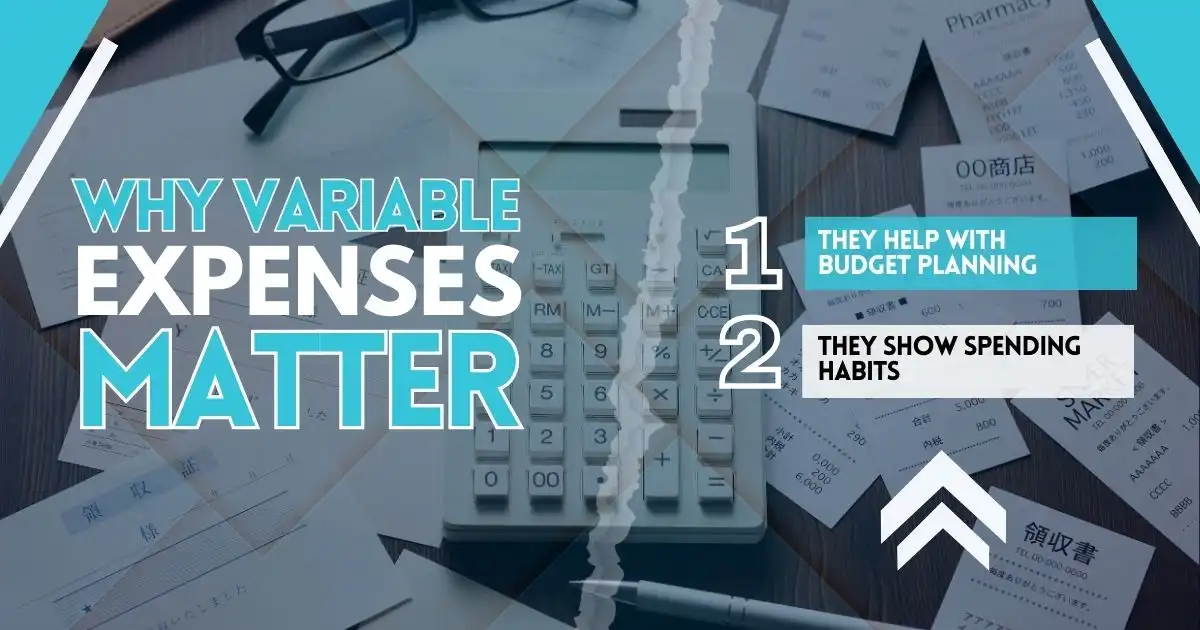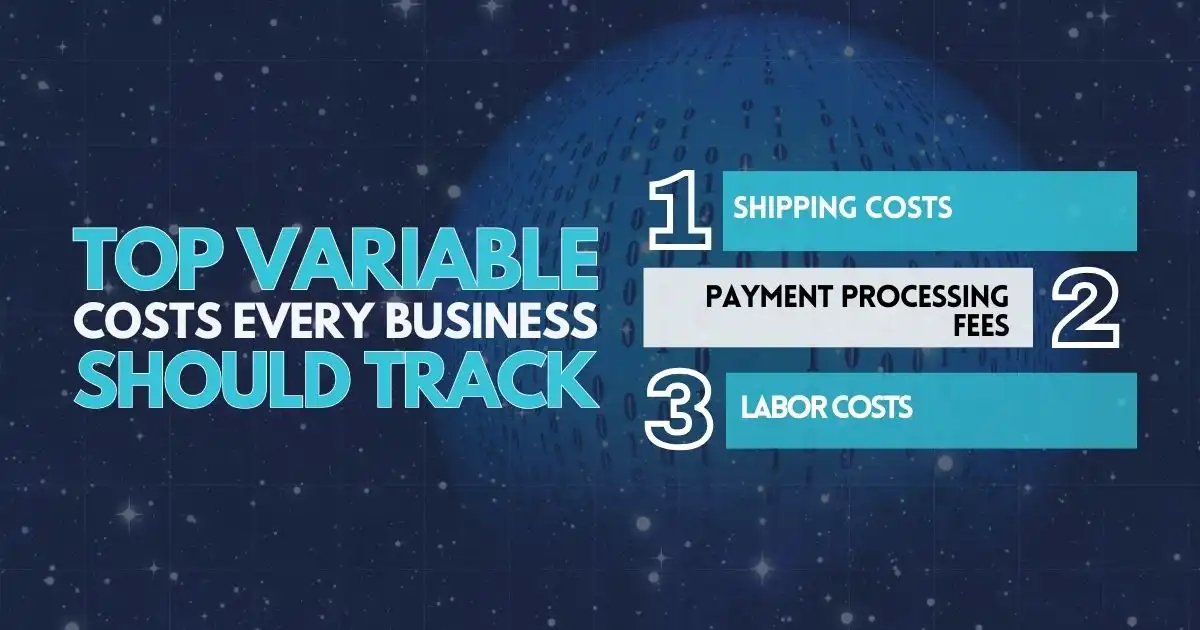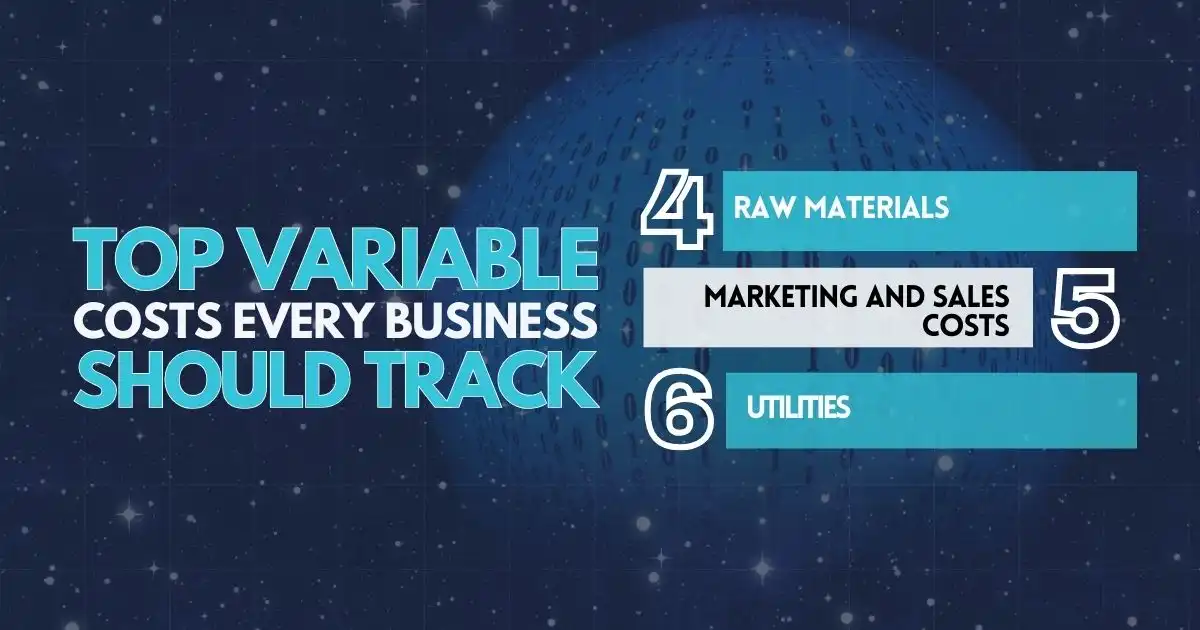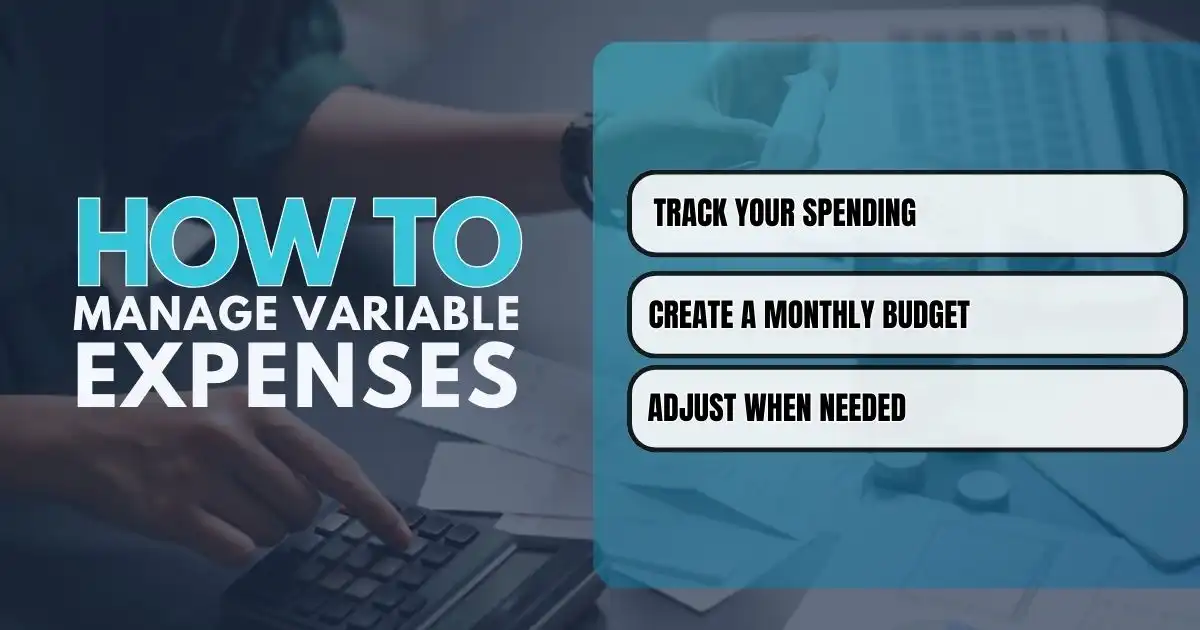Variable expenses are costs that change based on usage or activity, like dining out, utilities, or travel. They fluctuate month-to-month, unlike fixed costs such as rent. Since they depend on habits and lifestyle, they’re more flexible but harder to predict.
Even if your fixed costs stay the same, your budget can still fall apart. That’s because variable expenses shift without warning and often go unnoticed. Small changes—like eating out more or using extra electricity—can quickly add up.
Before adjusting anything else, ask yourself: are these unpredictable costs the reason your budget isn’t working?
How Do Variable Expenses Work?
Variable expenses are commonly connected to the level of activity that takes place during a certain period. This means that the amount of money spent can rise or fall based on how much of something is used, consumed, or produced.
For instance, if a larger amount of food is purchased in one week, a higher amount will be spent on groceries. On the other hand, if less electricity is used at home—perhaps by turning off unused lights or running fewer appliances—the electricity bill may be reduced.
In the case of businesses, variable expenses are also influenced by how much work is being done or how many products or services are being offered. When more products are sold, more materials, labor, and resources are needed to keep up with demand. As a result, expenses will increase.
But if fewer products are made or sold, fewer materials will be needed, and the total cost will decrease.
Why Variable Expenses Matter

Understanding the importance of variable expenses is essential when trying to manage money wisely. These expenses play an important role in shaping financial decisions, for personal use or business operations.
They Help With Budget Planning
When a budget is being created, it is important for both fixed and variable expenses to be included so that a clear picture of all financial responsibilities can be seen. Fixed expenses, such as rent or loan payments, usually stay the same and cannot be changed easily. However, variable expenses offer more flexibility and can be adjusted depending on the situation.
When a person needs to save more money or reduce spending, variable expenses are often the first area where changes are made. For example, spending on entertainment, dining out, or shopping can be lowered without affecting basic needs. By adjusting these expenses, better control over the budget can be achieved and financial goals can be reached more easily.
They Show Spending Habits
By keeping track of variable expenses, a clearer understanding of spending habits can be gained over time. When these expenses are regularly observed and recorded, patterns in how money is used can be noticed more easily.
For instance, if it is seen that a large amount of money is being spent on takeout food, online shopping, or entertainment, it may be decided that some changes should be made.
Unnecessary purchases can then be reduced, and more thoughtful choices can be encouraged. In this way, money can be saved, and overall financial management can be improved, making it easier to stay within a planned budget.
Top Variable Costs Every Business Should Track
Now that you know where variable expenses fit in your business, let’s break down the most common ones that could influence your financial decisions.

1. Shipping Costs
Shipping can quickly eat into profits, especially in e-commerce.
How to reduce it:
- Use smaller, lighter packaging like poly mailers.
- Partner with local carriers for shorter routes.
- Add third-party insurance to lower overall shipping risk and cost.
2. Payment Processing Fees
These vary based on transaction type, card used, and industry.
How to manage them:
- Offer discounts for cash payments in physical stores.
- Settle transactions quickly to avoid extra charges.
- Use fraud protection tools to reduce chargebacks and possibly secure better rates.
3. Labor Costs
Direct labor covers wages for employees involved in production.
Ways to save:
- Adjust staffing based on customer traffic to avoid overstaffing.
- Invest in training to improve productivity and reduce overtime.
- Retain staff—hiring replacements costs more than keeping good people.

4. Raw Materials
These are the basic inputs needed to produce your goods.
How to cut material costs:
- Lock in longer contracts with suppliers for lower rates.
- Buy in bulk if it aligns with forecasted demand.
- Shop around or redesign products using more affordable components.
5. Marketing and Sales Costs
Spending on ads, promotions, and campaigns adds up.
To spend wisely:
- Focus on data to find high-ROI campaigns.
- Track time-to-conversion for better budgeting accuracy.
6. Utilities
Electricity, water, and other utilities fluctuate with use.
Cut those bills by:
- Conducting energy audits to find savings opportunities.
- Reducing peak-hour usage and renegotiating utility rates.
How to Manage Variable Expenses

To stay in control of spending, variable expenses must be managed carefully. By using simple strategies, these costs can be tracked, planned, and adjusted to support better financial decisions.
- Track Your Spending – A list or app can be used to write down every variable expense. At the end of the month, these can be reviewed to see where money went.
- Create a Monthly Budget – A set amount can be given to each variable expense. For example, only a certain amount might be allowed for entertainment. If that amount is used up, no more should be spent in that category.
- Adjust When Needed – If income goes down or savings need to go up, variable expenses can be changed. For example, less eating out or fewer new clothes might be chosen for the month.
Don’t Let the Small Stuff Sink the Ship
It’s easy to focus on the big-ticket bills and forget the little things—but those little things add up fast. Variable expenses might seem harmless at first, but left unchecked, they can eat away at your budget like termites on a wooden floor.
A few extra takeout meals, an impulse buy here and there, or higher utility usage during summer—and suddenly, your financial plan’s off track. If you don’t track and adjust these costs, they’ll quietly pull the rug out from under your goals.
Start small. Set limits, review habits, and trim where it makes sense. Your money should work for you, not vanish without a trace.
Now’s the time to stop letting loose ends control your wallet. Will you keep letting the little things steal your peace—or will you take the wheel and steer your finances with purpose? The choice is yours.
FAQs
What is the difference between variable expenses and fixed expenses?
Variable expenses change depending on usage, like food or electricity. Fixed expenses, such as rent, stay the same every month.
How do variable costs fit into a monthly budget?
They’re added as flexible spending categories. You can adjust them based on income, goals, or changes in lifestyle.
Why is tracking spending habits important in personal finance?
It helps you see where your money goes. This makes it easier to cut back and stay on budget.
What are some financial planning tips for managing monthly expenses?
Set limits for flexible costs and track your spending regularly. Adjust your budget when your income or priorities shift.
